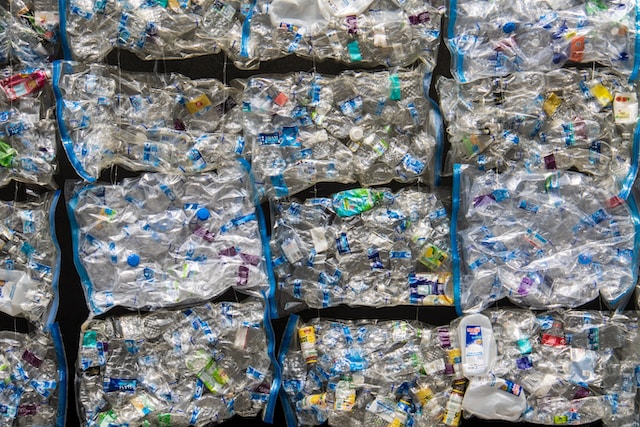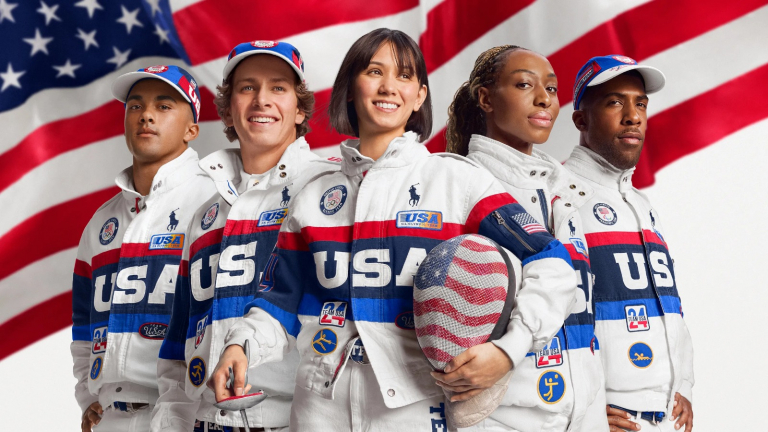Wastewear is a US-based company that creates apparel and accessories using fabrics made from 100% recycled cotton and used plastic bottles. The brand’s primary focus is to eliminate virgin materials from the production process, drastically reducing the amount of water and fabric waste, as well as the carbon footprint of the products.
The company, created by the twins Uddhav and Vaidehi Bagrodia, focuses mainly on bringing sustainable apparel options to organizations that generally pay little attention to where they buy clothes, such as corporates, colleges, and government offices.
What’s the story behind Wastewear?
Wastewear was founded when the siblings were still in college, Vaidehi at the Fashion Institute of Technology, and Uddhav at Babson College majoring in business. Their family has been in the textile industry for over 30 years, and they grew up surrounded by fabric waste.

“We used to play in large piles of fabric scraps, and, at the time, we had no idea that all of that was going to waste,” says Uddhav. Only later in life, when they were in college, something clicked, and they realized how much garbage was generated by the fashion industry.
“When I looked at the fashion industry, I saw that everybody was doing the same things, using the same materials, and I wanted to do more and try to work with 100% recycled materials”, shares Uddhav.
But why cotton and used plastic bottles?
In the fashion industry, recycled and sustainable fabrics have grown significantly throughout the years. Different types of clothes were born, made from the most shocking products such as plastic bags and old tiers. However, Wastewear makes clothes only from recycled cotton and used plastic bottles. For Uddhav, different factors made them choose these specific raw materials.
Recycled Cotton
“Today, cotton is one of the most irreplaceable fabrics in the world because of its comfort and quality, but it also has a huge impact on the environment.
Cotton farming wastes tons of water, which is even higher without using pesticides and insecticides [in organic cotton farms, for example], and has considerable carbon emissions.
Using recycled cotton, Wastewear eliminates the need to produce virgin cotton, ending the water waste and reducing the impact of transporting cotton from one country to another. At Wastewear, we try our best to collect the materials locally.”
Used Plastic Bottles
“Another of the most used fabrics in the fashion industry is polyester, generally made from petroleum. I don’t think I have to explain why petroleum exploitation is terrible for the environment [laughs].
By using used plastic bottles, we can repurpose them and produce recycled polyester, which we blend with recycled cotton to create different textures and feels.”

“Our family’s factories helped us a lot in understanding the best ways to blend the materials and in what proportions. We couldn’t have done without them. The difficulties in working with recycled cotton are one main reason brands hesitate to use that material.
When the cotton is recycled, the cotton fibers don’t maintain all the original properties, which makes it more difficult to spin into yarn. However, different studies are already trying to restrengthen those fibers after the recycling process.
And I would like to clarify that recycled cotton is not a new technology. Different companies already use it to make lower-quality products such as carpets and furniture in blends with other virgin materials.
But, Wastewear has a higher focus on utilizing only recycled fibers to make clothes and shows that recycled cotton can also be high quality.”
A Brand based on collaboration
Wastewear works on different fronts, but the main focus right now is working alongside organizations to make uniforms and branded merchandize/ clothes from 100% recycled waste materials.
They have a long-time partnership with Babson College, where Uddhav went to business school. Wastewear joined Babson and created the college’s merch using their newly developed fabric.
“Being a Business College, Babson really believes in their students’ businesses. They believed in us and partnered with us to create sustainable merchandize for their events,” shares Uddhav.
At Wastewear, they are putting extra work into reaching out to colleges, universities, non-profit organizations, mayor’s offices, and corporations and showing them the impact their merch can have and how they can make a difference using recycled fabrics.
Since their focal point is companies outside the fashion industry, the first step is convincing business people who have never thought about where their clothes are from that they should choose a more sustainable option.
That process can be challenging because of the lousy name sustainable fashion has gained lately. Many people believe that sustainable clothes are not accessible, have unnecessary high prices, and mistake authentic eco brands for greenwashing. For Uddhav, in the battle to fight that, education is key.
Greenwashing and sustainable fashion price point
The fact is that, lately, sustainability has taken an essential role in the fashion industry. More customers are concerned with the origin of their clothes and the working conditions suppliers provide.
Although that’s a good thing, companies have taken this opportunity to misguide customers and convince them that their brands are eco-friendly, even if they aren’t.
“I went shopping the other day to study the market, and most of the clothes I looked at had a tag that said: “sustainable.” However, when I checked the rest of the information, only a few were truly sustainable pieces.
Companies will change their production to have 5% recycled material and already claim the title of a sustainable brand. In reality, they’re only misleading clients and harming the name of authentic eco brands, like Wastewear, that use 100% recycled materials.”
When discussing price points, eco brands like Wastewear also face difficulties.
“The market works on an offer and demand logic, and the reality is that there isn’t a big offer of recycled fabrics and sustainable suppliers, so that directly affects the price that pieces have when they hit the stores.”
For Uddhav, the best way to change that reality is through education. That’s why Uddhav and Vaidehi try their best to participate in different conferences and events to spread the word about recycled fibers and Wastewear.
Uddhav Bagrodia is one of our confirmed speakers at the 2nd Miami Talks on July 10th! Besides Uddhav’s panel, Wastewear partnered with Fashinnovation to create exclusive tote bags made of 100% recycled fabric for the Miami Event.
Don’t know yet about the 2nd Miami Talks? Check it out right now and tune in for this fantastic event!






